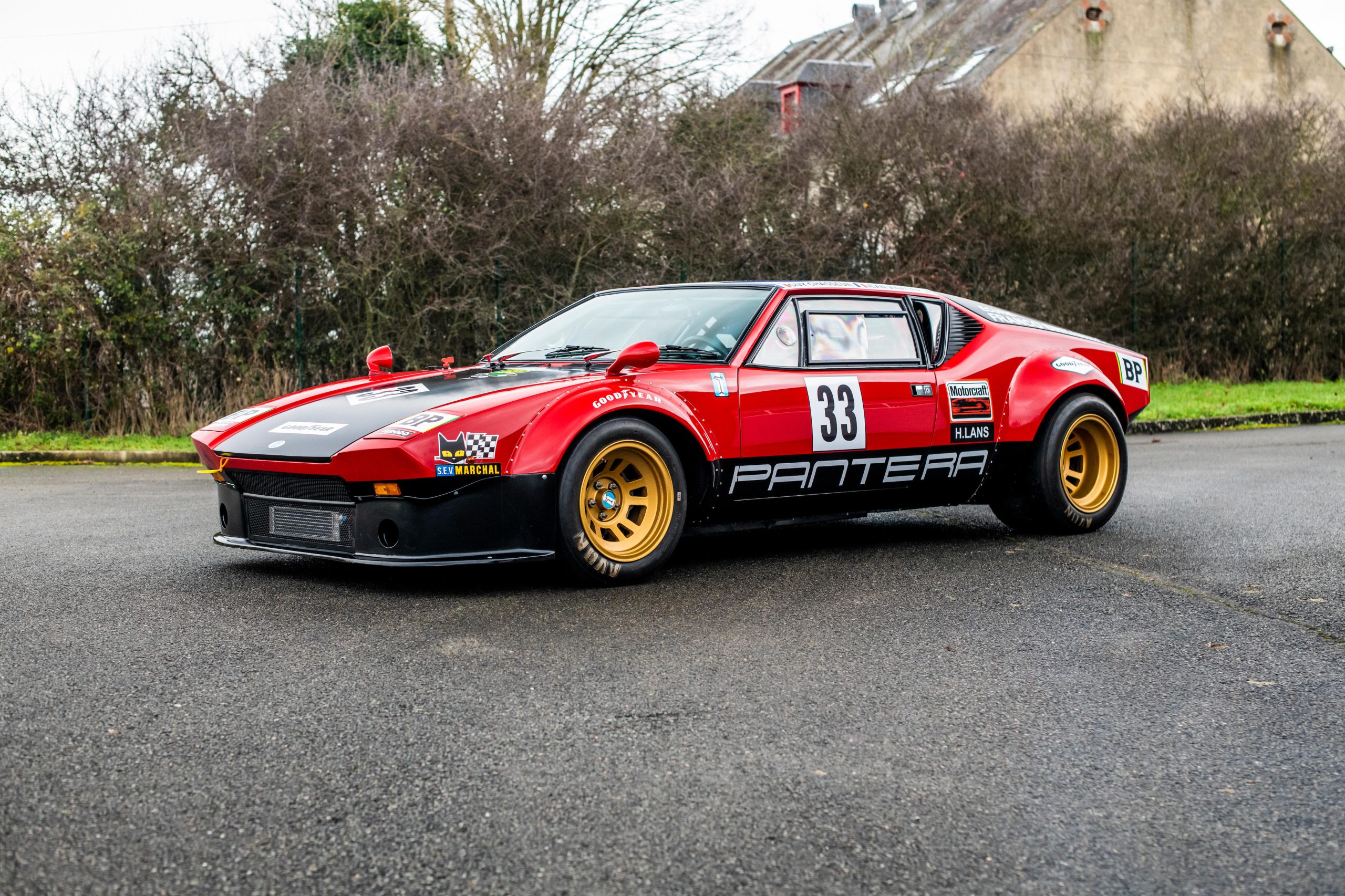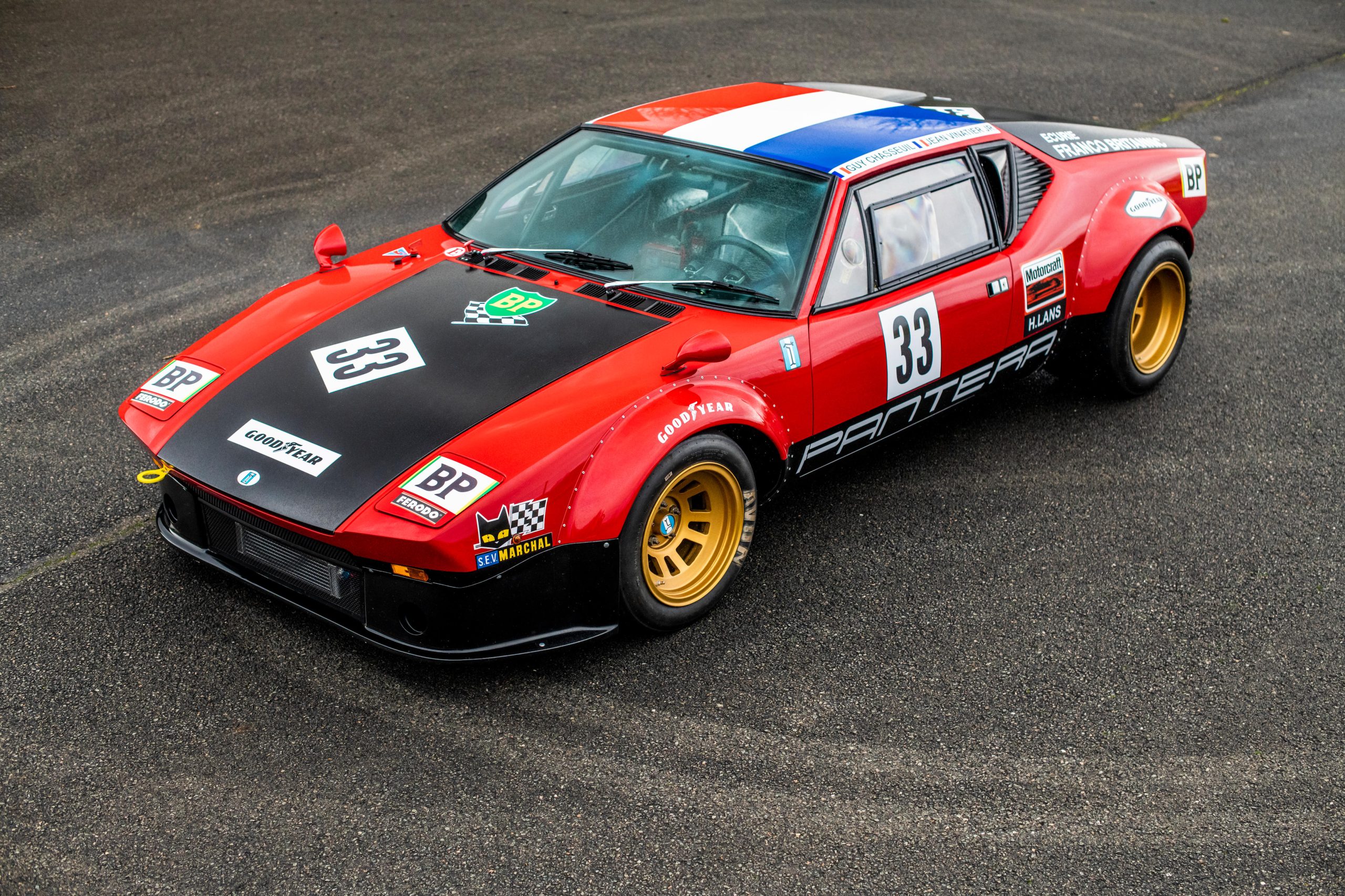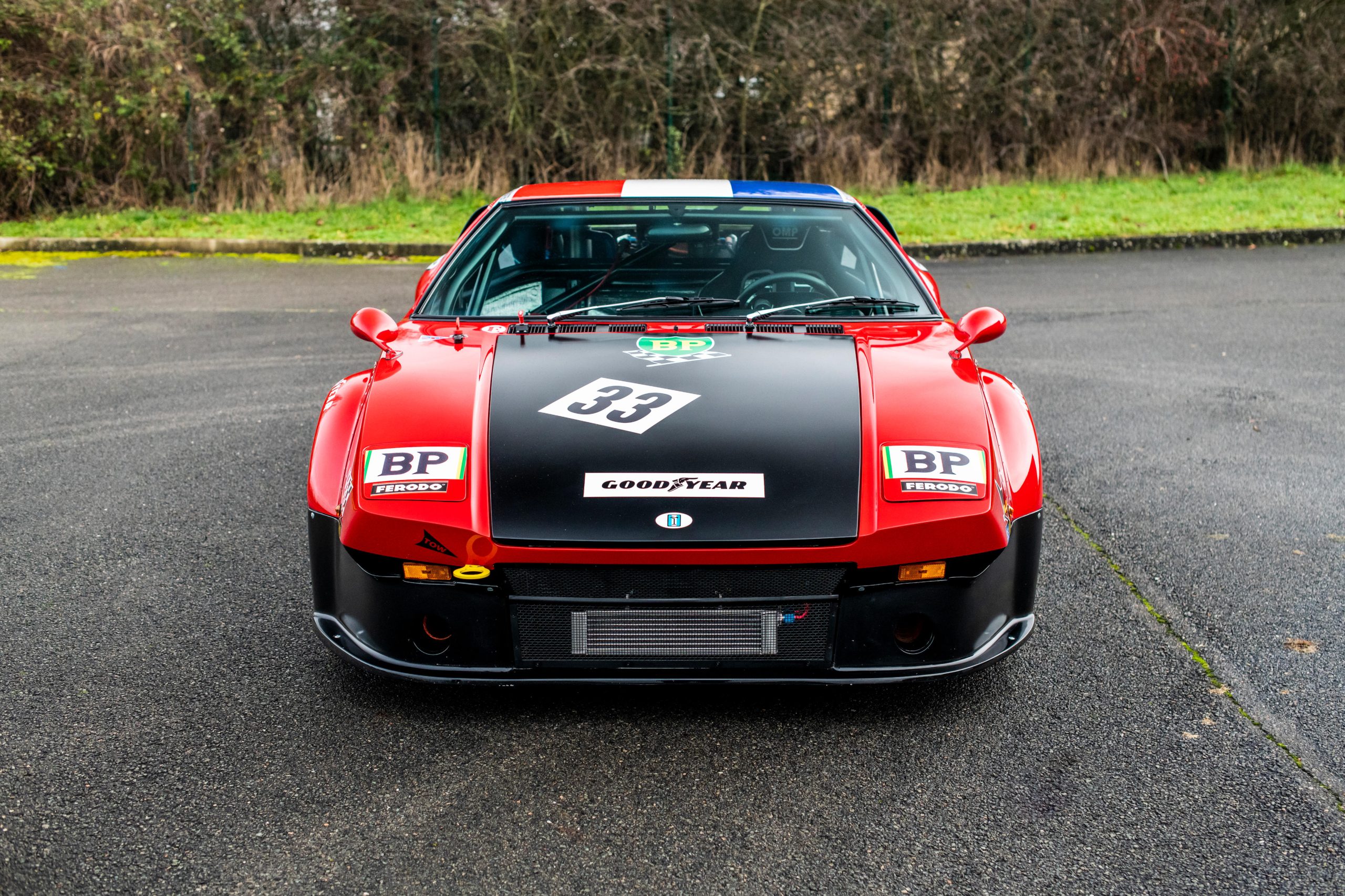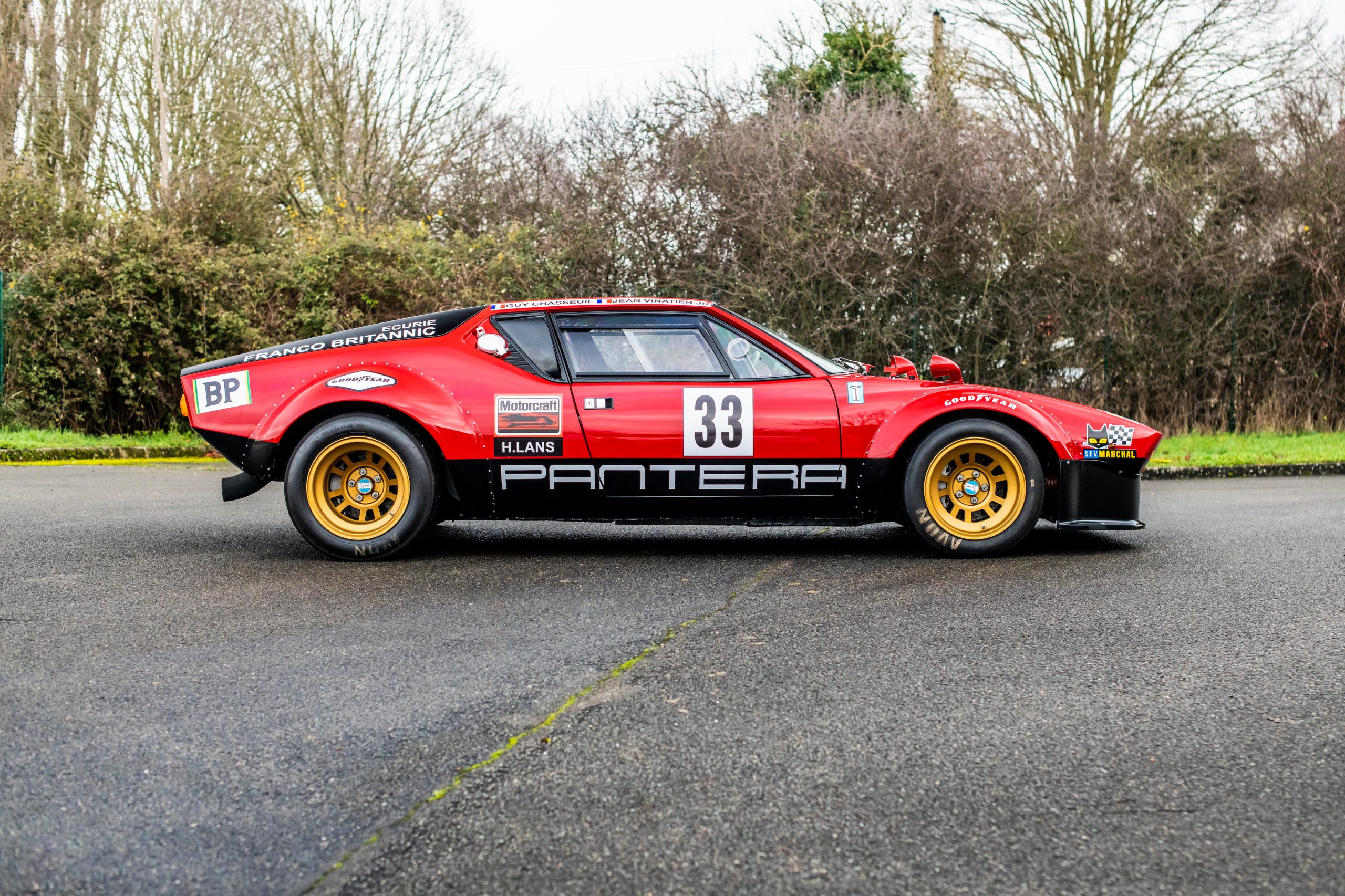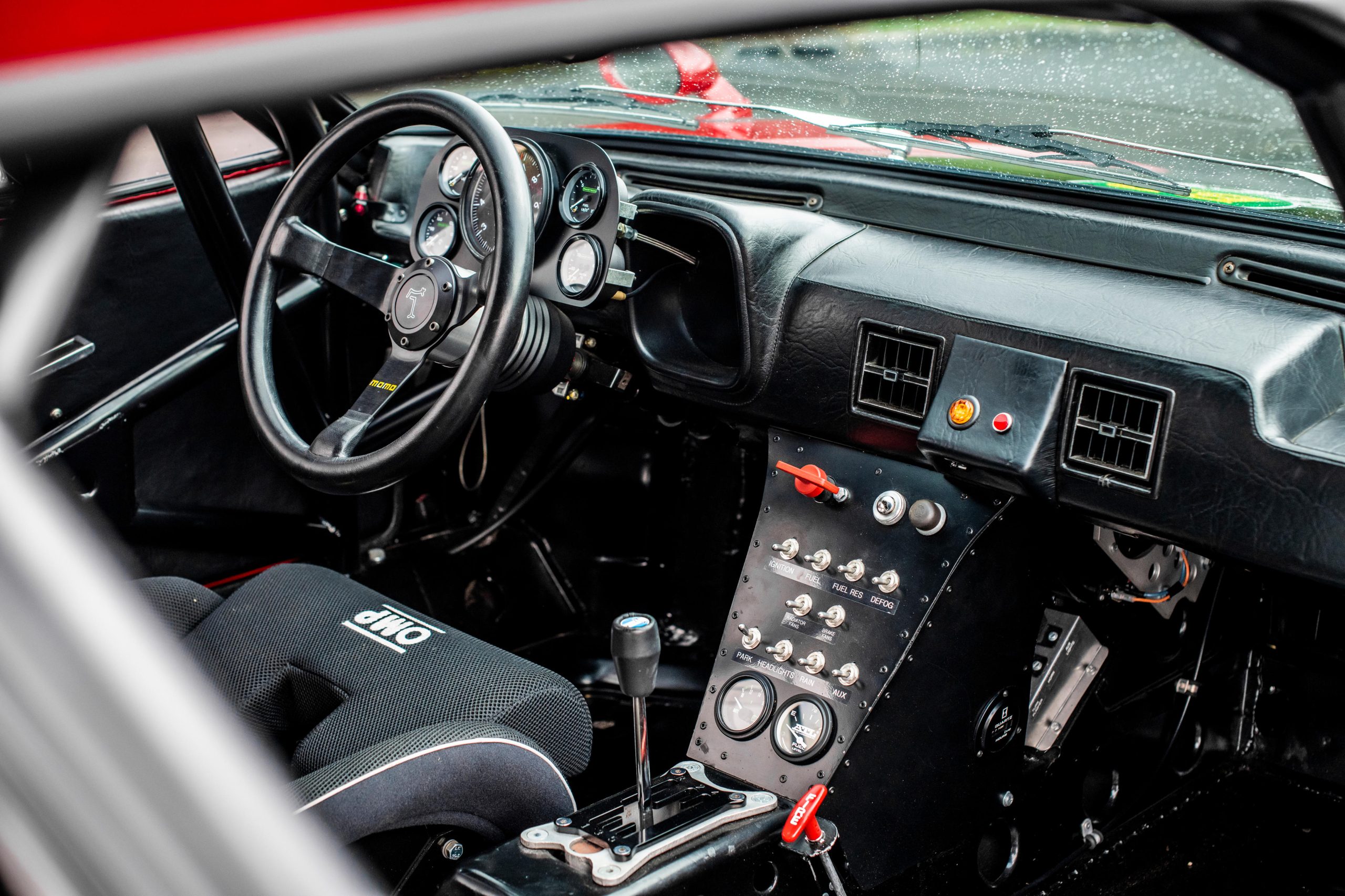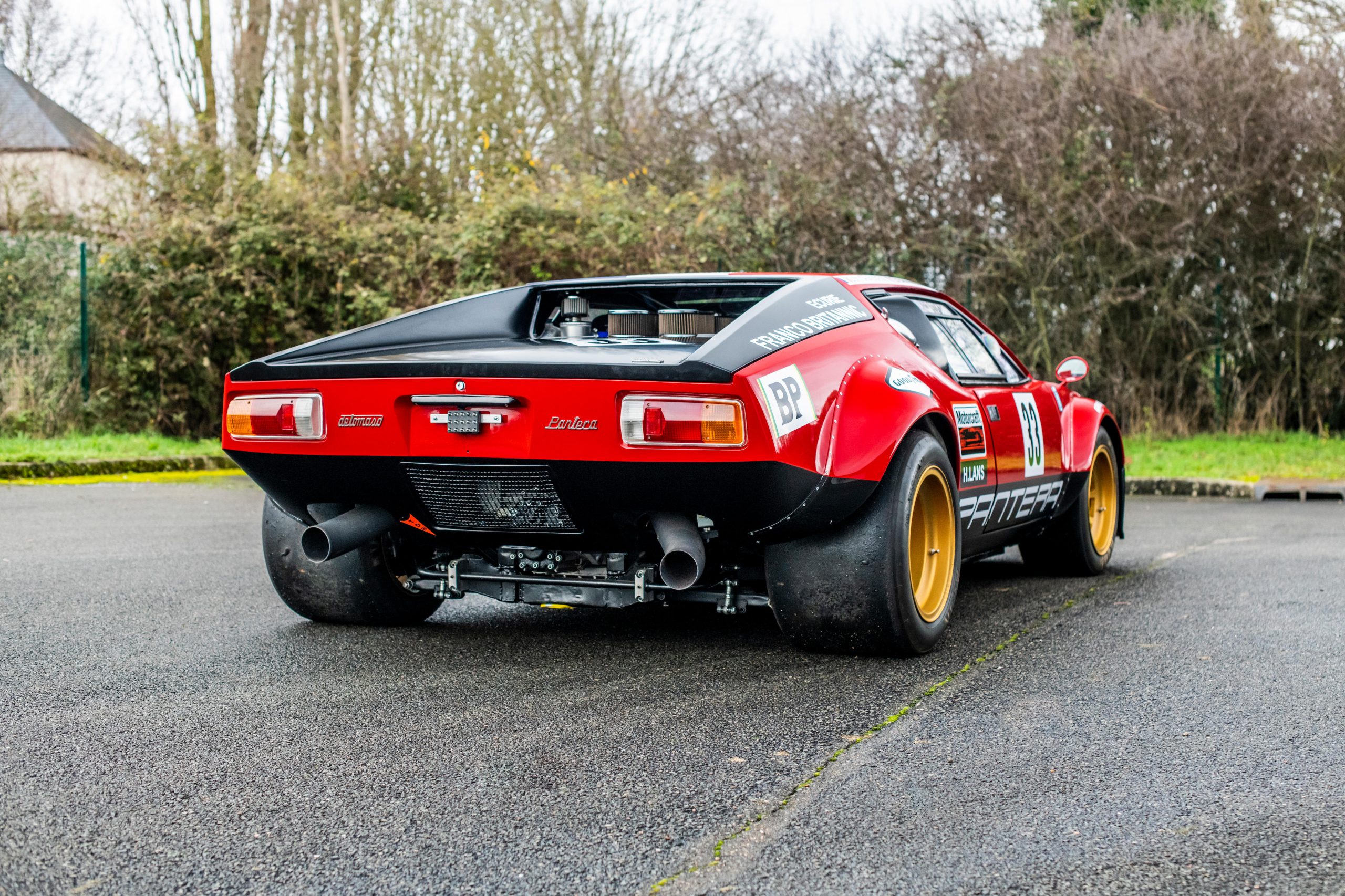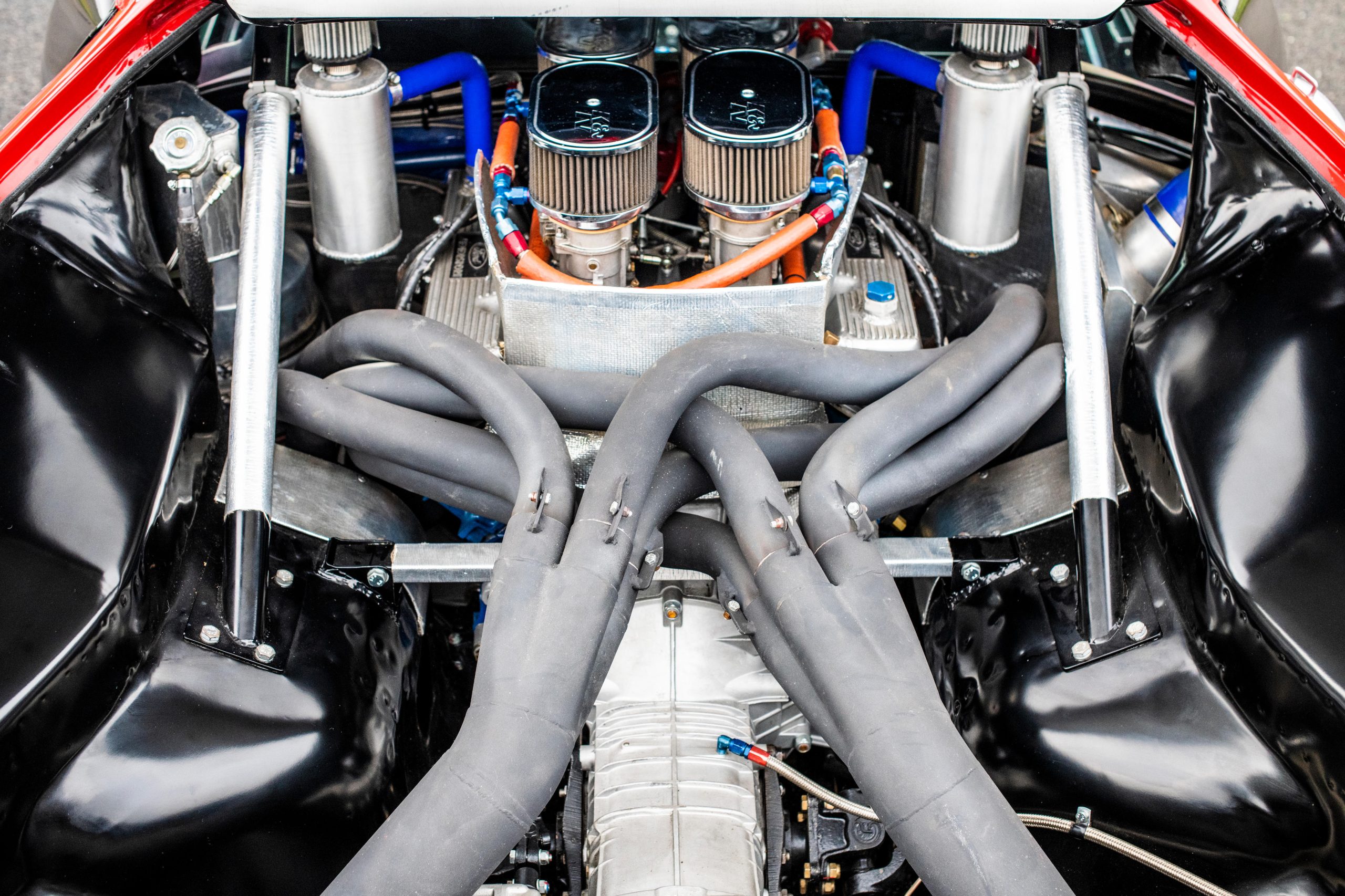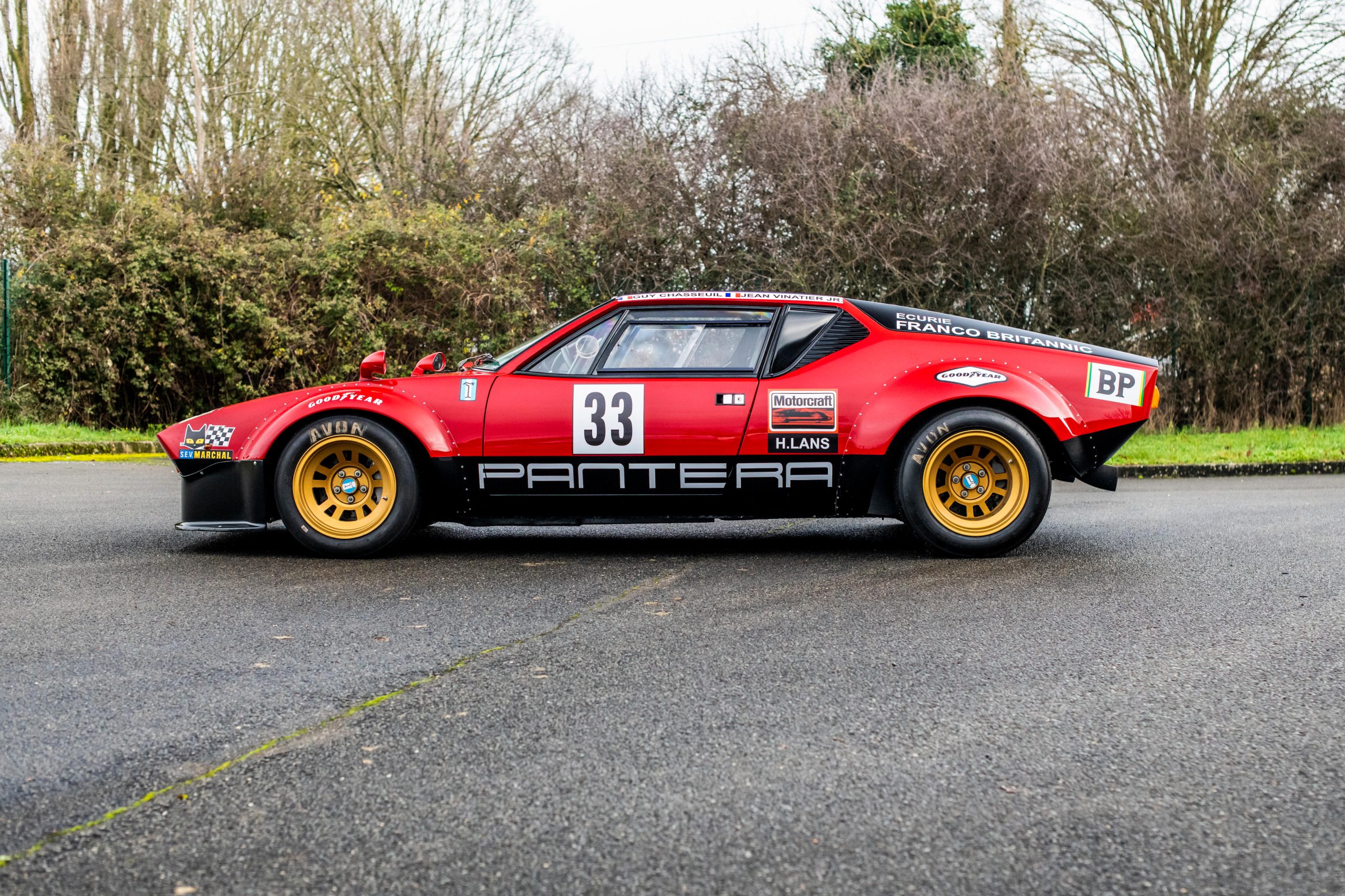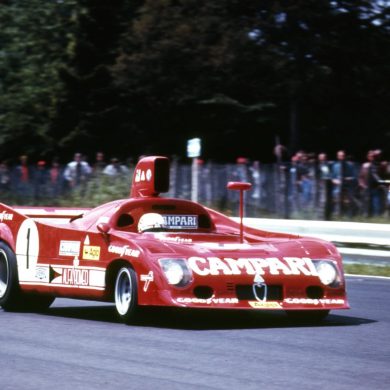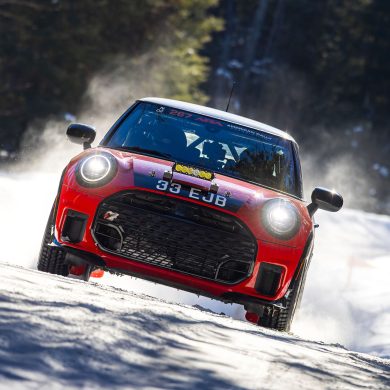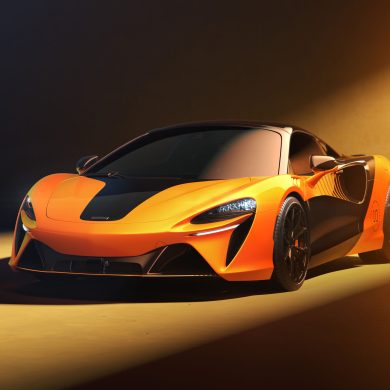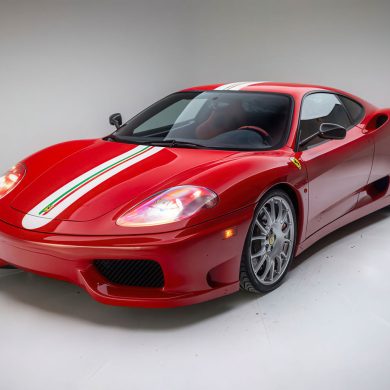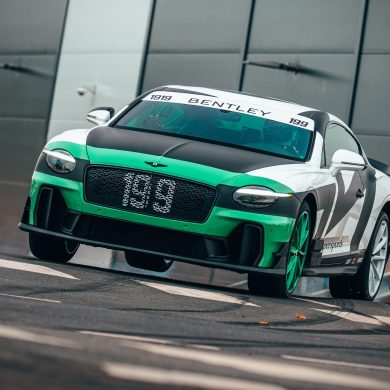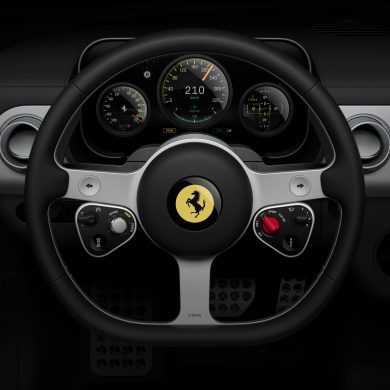De Tomaso not only produced road cars but also offered Panteras configured for FIA’s Group 3, Group 4, and Group 5 categories. Launched in 1972 with assistance from former Ferrari Formula 1 driver and engineer Mike Parkes, the Group 4 Pantera retained the stock steel monocoque chassis while upgrading nearly every component of the running gear for racing stresses and extensively lightening the bodywork.
Powered by the same Ford 351 Cleveland V8 engine as the road Pantera, the Group 4 version featured bespoke aluminum heads, TRW forged pistons, large capacity oil pans, titanium valves, and initially, a single Holley Racing 1150 CFM four-barrel carburetor. This was later replaced by four Weber carburetors with a revised intake, boasting a higher compression ratio of 12.0:1. The racing engine maintained the displacement of the road Pantera but showcased a claimed power output of 500 hp. The engine was paired with a ZF 5-speed close-ratio manual transmission with a heavy-duty single clutch plate.
Debuting at the 1972 24 Hours of Le Mans, the Group 4 Pantera faced challenges, including engine reliability issues and a weight penalty that raised the weight to 2,756 lbs, allegedly influenced by Porsche. Despite these setbacks, the Group 4 Pantera persevered, and improvements were made, including addressing engine reliability by using replacement engines with a lower compression ratio. A total of 14 Group 4 cars were produced, and some Group 3 cars were converted to Group 4 specifications by privateers.
Photo Source: Bonhams Cars


